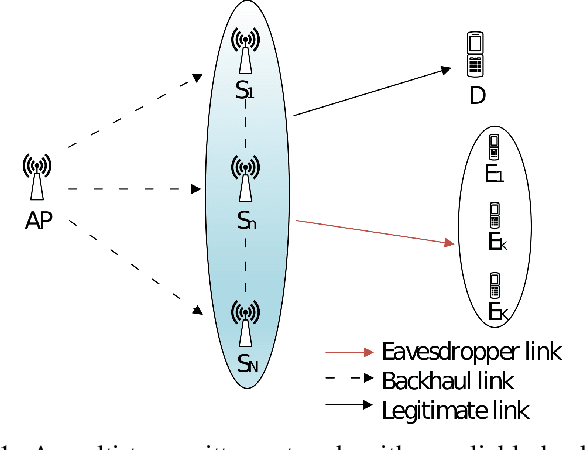Transmitter Selection for Secrecy Against Colluding Eavesdroppers with Backhaul Uncertainty
Paper and Code
Jan 02, 2023



In this paper, the secrecy performance of a multi-transmitter system with unreliable wireless backhaul links in the presence of multiple colluding eavesdroppers is considered. To improve the secrecy performance, two sub-optimal and optimal transmitter selection schemes are proposed. A generalized approach for the secrecy performance analysis is adopted to integrate the backhaul link reliability factor with the channel signal-to-noise ratio (SNR) through a mixture distribution depending on whether the backhaul reliability knowledge is unavailable or available. Non-zero secrecy rate (NZSR), secrecy outage probability (SOP), and ergodic secrecy rate (ESR) are evaluated for each selection schemes via a unified channel SNR ratio distribution based approach. Simplified asymptotic expressions are provided in each case to elucidate the infulence of the system parameters and of the backhaul reliability factor. We observe that the unreliable backhaul limits the secrecy performance of transmitter selection schemes by saturating the NZSR and SOP performance and by reducing the rate of change of the ESR with SNR. The performance improves when the knowledge of backhaul link activity is utilized, and the improvement is most noticeable when the backhaul is highly unreliable. We also observe that while the secrecy performance degrades with an increasing number of eavesdroppers, neither the asymptotic saturation value of the NZSR and SOP nor the rate of ESR improvement with SNR depends on the number of eavesdroppers.
 Add to Chrome
Add to Chrome Add to Firefox
Add to Firefox Add to Edge
Add to Edge